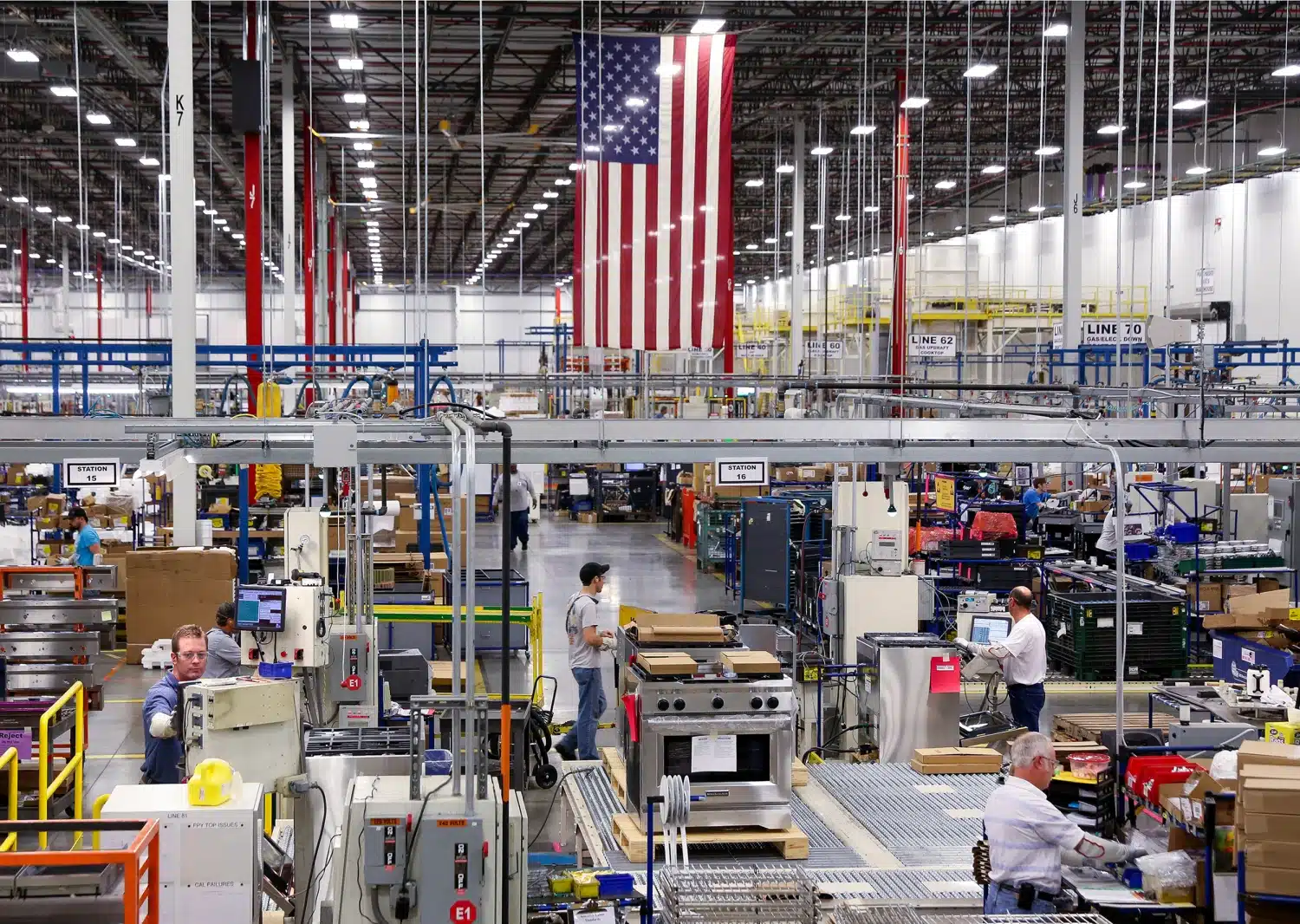Manufacturing activities in the United States further dropped in June, owing to what was attributed to a decline in demand.
The Institute for Supply Management’s (ISM) Purchasing Managers Index (PMI), recorded 48.5 per cent in June, down by 0.2 percentage points from May.
Join our WhatsApp ChannelAccording to Briefing.com, the June PMI data came below expectation of 49.1 per cent and marked the third consecutive month where the outcome was below the 50-point mark. It also marks a decline for the 19th time in the last 20 months.
Commenting on the PMI data, ISM survey chief, Timothy Fiore, said in a statement that manufacturing in US has continued to witness contraction as a result of weak demand and unwillingness of companies to invest in capital and inventory due to uncertainties in the economic system, especially the current monetary policy and other conditions in the country.
“U.S. manufacturing activity continued in contraction at the close of the second quarter. Demand remains subdued, as companies demonstrate an unwillingness to invest in capital and inventory due to current monetary policy and other conditions,” Fiore stated.
Fiore referred to the U.S. Federal Reserve’s ongoing monetary policy actions to curb inflation.
READ ALSO: Gold Price Rallies Above $2,030 Amidst Geopolitical Tensions, Uncertain Fed Outlook
Reports indicate that since the U.S. Fed started raising interest rates in 2022, inflation has decreased significantly, but it is still higher than its long-term target of 2 per cent, which keeps borrowing costs high for both producers and consumers.
US inflation saw a decline in May 2024 with the annual rate of the consumer price index decreasing to 3.3 per cent from 3.4 per cent in April.
“Production execution was down compared to the previous month, likely causing revenue declines, putting pressure on profitability,” Fiore added.
According to the ISM survey, nine manufacturing industries, including textile mills, transportation equipment, and electrical equipment, saw contraction in June, while eight, including petroleum and coal products and chemical products, witnessed an increase.
“The continued decline in the PMI reflects weak demand, falling output, and ongoing challenges. Businesses are hesitant to invest due to economic uncertainty and monetary policy tightening,” Analyst at Comercio Partners, a Lagos-based financial advisory, trading and investment firm wrote. “Production cuts and employment reductions may be putting pressure on profitability. While supplier delivery times are improving, businesses remain cautious about future demand.”
It also observed that the sustained manufacturing contraction, following last week’s GDP review, raises concerns about a broader economic slowdown. “The Fed may need to reconsider its tightening stance if economic data worsens,” it added.
Victor Ezeja is a passionate journalist with seven years of experience writing on economy, politics and energy. He holds a Master's degree in Mass Communication.



















Follow Us